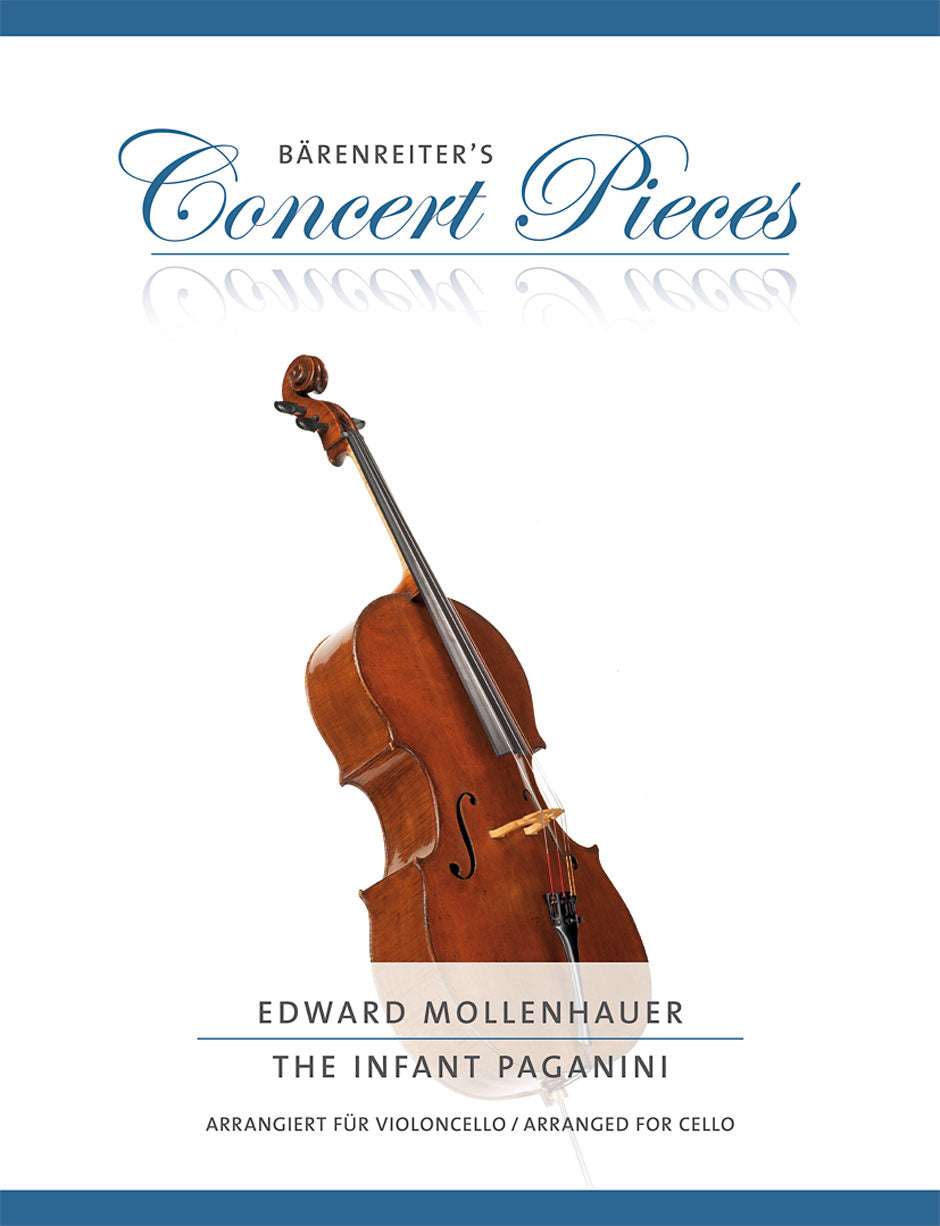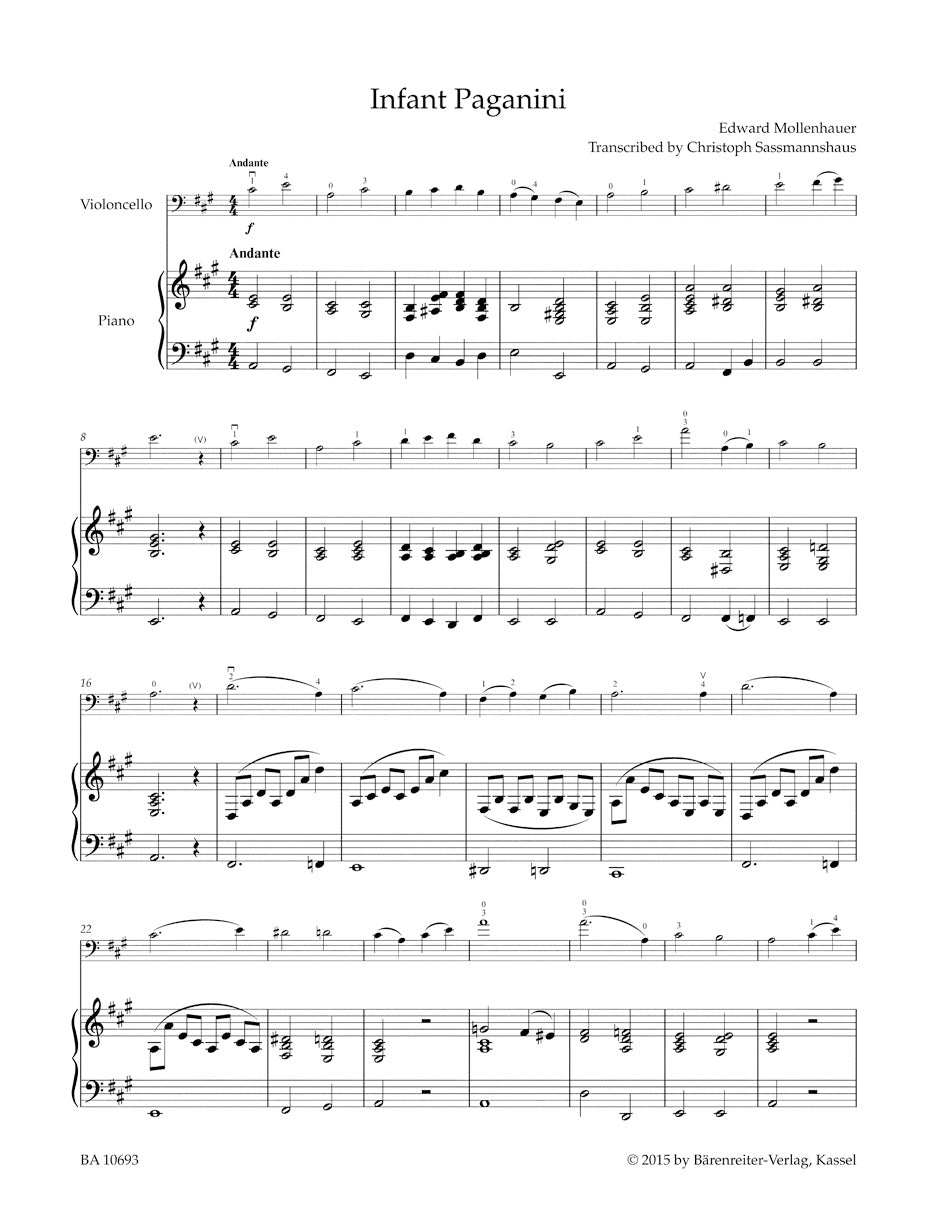


BARENREITER - 345062
Mollenhauer The Infant Paganini -fantasie for Cello and Piano- (Transcribed for Violoncello and Piano)
Composer: Edward Mollenhauer
Publisher: Bärenreiter
Instrumentation: Cello
Binding: Stapled
Dimensions: 11.8 in x 9.1 in
Pages: 10
Mollenhauer The Infant Paganini -fantasie for Cello and Piano- (Transcribed for Violoncello and Piano)
Juilliard Store
144 West 66th Street
New York NY 10023
United States
Choose options

Mollenhauer The Infant Paganini -fantasie for Cello and Piano- (Transcribed for Violoncello and Piano)
Juilliard Store
144 West 66th Street
New York NY 10023
United States
Mollenhauer The Infant Paganini -fantasie for Cello and Piano- (Transcribed for Violoncello and Piano)
Juilliard Store
144 West 66th Street
New York NY 10023
United States
Editor: Sassmannshaus, Christoph
Orchestral scoring : Vc-solo/piano
Product format: piano reduction, part(s)
Binding: Stapled
Pages / Format: 43225 - 30,0 x 23,0 cm
Both appear here in their original version for violin and piano and, for the first time, in a transcription for cello and piano by Christoph Sassmannshaus.
The Mollenhauer fantasia “The Infant Paganini” is a charming introduction to early virtuoso techniques. It calls for bowing techniques such as detaché, legato, spiccato and arpeggios over three strings. Players are also expected to play harmonics and pizzicato.
This showpiece (BA 10691) can be accomplished by young violinists who can play in first to third position and who are nearing completion of the Sassmannshaus Early Start on the Violin, volume 4.
It (BA 10693) can be equally mastered by young cello students who are working with volume 4 of the Sassmannshaus “Early Start on the Cello” and can manage first to fourth position.
“The Boy Paganini” is an impressive concert piece which is more demanding. Its two movements call for changes of metre, harmonics and pizzicato. Other challenges include chords on all four strings and simple passages in octaves.
On the violin (BA 10692), the technical requirements call for first to fifth position whereas on the cello (BA 10694), the student must be able to play in first to fourth position.
Both violinists and cellists should have completed volume 4 of “Early Start on the Violin” and “Early Start on the Cello” respectively in order to master this work.
• Popular recital pieces for young violinists and cellists
• Both works form an ideal continuation of the Sassmannshaus “Early Start” methods
• Pieces originally scored for violin now also available for the first time for cello
